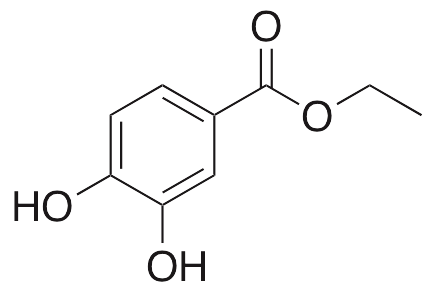Description
Protocatechuic acid is a dihydroxyphenolic acid originally found in cruciferous vegetables, sunflowers, rice, and other plants. Protocatechuic acid exhibits a wide variety of beneficial properties, including antioxidative, anti-inflammatory, anti-parasitic, antibacterial, anti-metastatic, and anticancer activities. Protocatechuic acid inhibits TNF-induced expression and release of adhesion molecules and pro-inflammatory cytokines as well as ADP-induced expression of platelet P-selectin. This compound increases quinone reductase activity and acts as a radical scavenger as well. Additionally, protocatechuic acid improves pathology, motor function, and cognition and decreases infarct size in animal models of bilateral common carotid artery occlusion. This compound is active against both gram positive and gram negative bacteria and exerts antiparasitic activity in vitro and in vivo, indicating potential benefit as an antimalarial treatment. In vitro, protocatechuic acid inhibits RhoB activation, decreasing expression of matrix metalloproteinase 2 (MMP2) and inactivating NF-κB and also inhibits human topoisomerase II; these activities result in inhibition of metastasis, invasion, and proliferation in a variety of cellular models.
